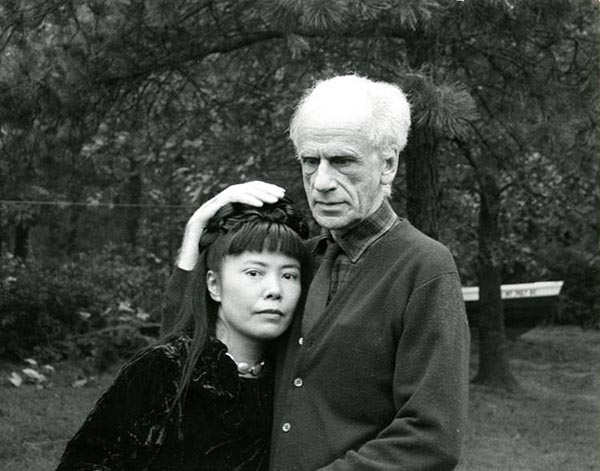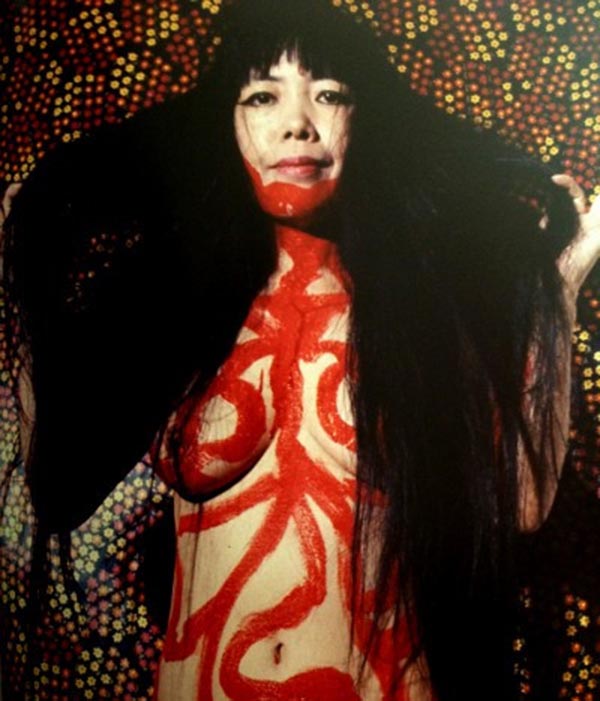Due to financial burden and socio-political mood of the time, by 1967 Yayoi Kusama expanded her art to another field - the performance art. America at the time was heavily involved with Civil Rights movement and Vietnam protest movement, which lead to increasing open attitude to sexuality, drug use and mysticism. Yayoi Kusama's performance art also involved these themes.
Yayoi Kusama presented "Self-Obliteration: An Audio-Visual-Light Performance" at Black Get Theater in New York. During which Yayoi Kusama and her models will complete obliterate themselves in a polka-dot dance party. She directed the "Kusama's Self-Obliteration" a film shot by Jud Yalkut. The film used polka-dots to conceal people, animals, environments, and everything around. Yayoi Kusama use the film as a metaphor to give up identity, ablosh uniqueness to become with the universe or what she called "self-obliteration,"
Her performance arts were huge success, yet she also faced many controversies against her excessive use of nudity to convey sensitive themes on political and social topics such as homosexuality. In Japan, she was once seen as the "shame of the country". The provocative performances brought her fame to a new level. However, her depression and ill health were also brought to a critical level due to over-exposure.
By early 1977, Yayoi Kusama permanently relocate back to Japan where she spend most of her life fighting against her own hallucination and mental illness till this day.
Yayoi Kusama was never married. Rumors float around regarding
Yayoi Kusama's love relationship with many of her artist friends, she
acknowledged none but only one - Joseph Cornell. Their love story was
just as legendary as their artworks. The lovers were 25 years apart in
age. 58 year old Cornell fell in love for
the first time with 33 year old Kusama. Both were neurotic and scared of
the opposite gender, they were never married, never had sex. Yet they
were bound by pure love for a decade long. It was never confirmed about
Yayoi Kusama's deteriorating mental health in 1977 was directly affected
by the death of Cornell. However, they definitely remained
irreplaceable in each others life, and art.






No comments:
Post a Comment